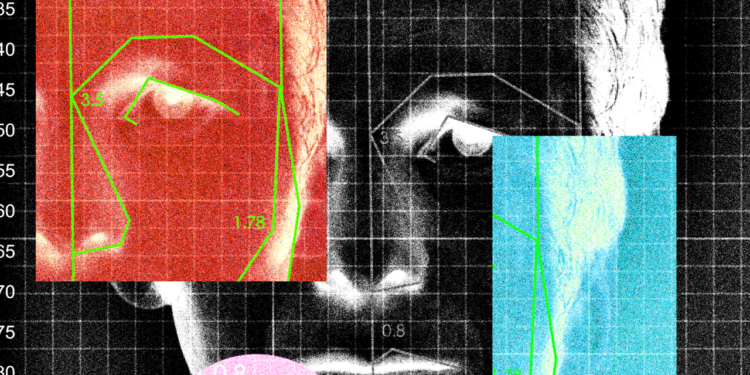By WIRED
Canada-based University of Waterloo is racing to remove M&M-branded smart vending machines from campus after outraged students discovered the machines were covertly collecting face recognition data without their consent.
The scandal started when a student using the alias SquidKid47 posted an image on Reddit showing a campus vending machine error message, “Invenda.Vending.FacialRecognitionApp.exe,” displayed after the machine failed to launch a face recognition application that nobody expected to be part of the process of using a vending machine.
“Hey, so why do the stupid M&M machines have facial recognition?” SquidKid47 pondered.
The Reddit post sparked an investigation from a fourth-year student named River Stanley, who was writing for a university publication called MathNEWS.
Stanley sounded the alarm after consulting Invenda sales brochures that promised “the machines are capable of sending estimated ages and genders” of every person who used the machines—without ever requesting consent.
This frustrated Stanley, who discovered that Canada’s privacy commissioner had years ago investigated a shopping mall operator called Cadillac Fairview after discovering some of the malls’ informational kiosks were secretly “using facial recognition software on unsuspecting patrons.”
Only because of that official investigation did Canadians learn that “over 5 million nonconsenting Canadians” were scanned into Cadillac Fairview’s database, Stanley reported. Where Cadillac Fairview was ultimately forced to delete the entire database, Stanley wrote that consequences for collecting similarly sensitive face recognition data without consent for Invenda clients like Mars remain unclear.
Stanley’s report ended with a call for students to demand that the university “bar facial recognition vending machines from campus.”
A University of Waterloo spokesperson, Rebecca Elming, eventually responded, confirming to CTV News that the school had asked to disable the vending machine software until the machines could be removed.
Students told CTV News that their confidence in the university’s administration was shaken by the controversy. Some students claimed on Reddit that they attempted to cover the vending machine cameras while waiting for the school to respond, using gum or Post-it notes. One student pondered whether “there are other places this technology could be being used” on campus.
Elming was not able to confirm the exact timeline for when the machines would be removed, other than telling Ars it would happen “as soon as possible.” Elming declined Ars’ request to clarify if there are other areas of campus collecting face recognition data. She also wouldn’t confirm, for any casual snackers on campus, when, if ever, students could expect the vending machines to be replaced with snack dispensers not equipped with surveillance cameras.
Invenda Claims Machines Are GDPR-Compliant
MathNEWS’ investigation tracked down responses from companies responsible for smart vending machines on the University of Waterloo’s campus.
Adaria Vending Services told MathNEWS that “what’s most important to understand is that the machines do not take or store any photos or images, and an individual person cannot be identified using the technology in the machines. The technology acts as a motion sensor that detects faces, so the machine knows when to activate the purchasing interface—never taking or storing images of customers.”
According to Adaria and Invenda, students shouldn’t worry about data privacy because the vending machines are “fully compliant” with the world’s toughest data privacy law, the European Union’s General Data Protection Regulation (GDPR).
“These machines are fully GDPR compliant and are in use in many facilities across North America,” Adaria’s statement said. “At the University of Waterloo, Adaria manages last mile fulfillment services—we handle restocking and logistics for the snack vending machines. Adaria does not collect any data about its users and does not have any access to identify users of these M&M vending machines.”







Discussion about this post